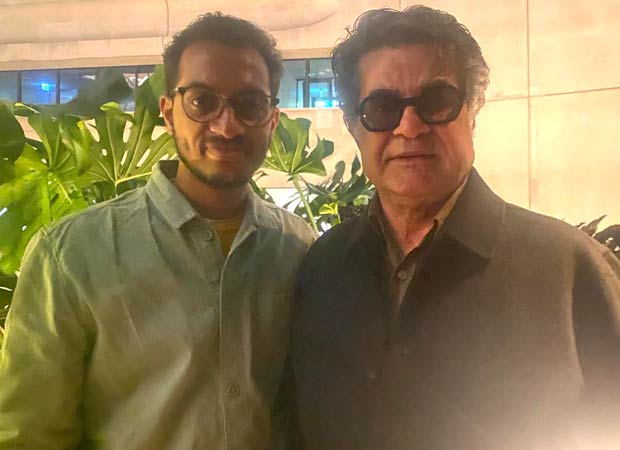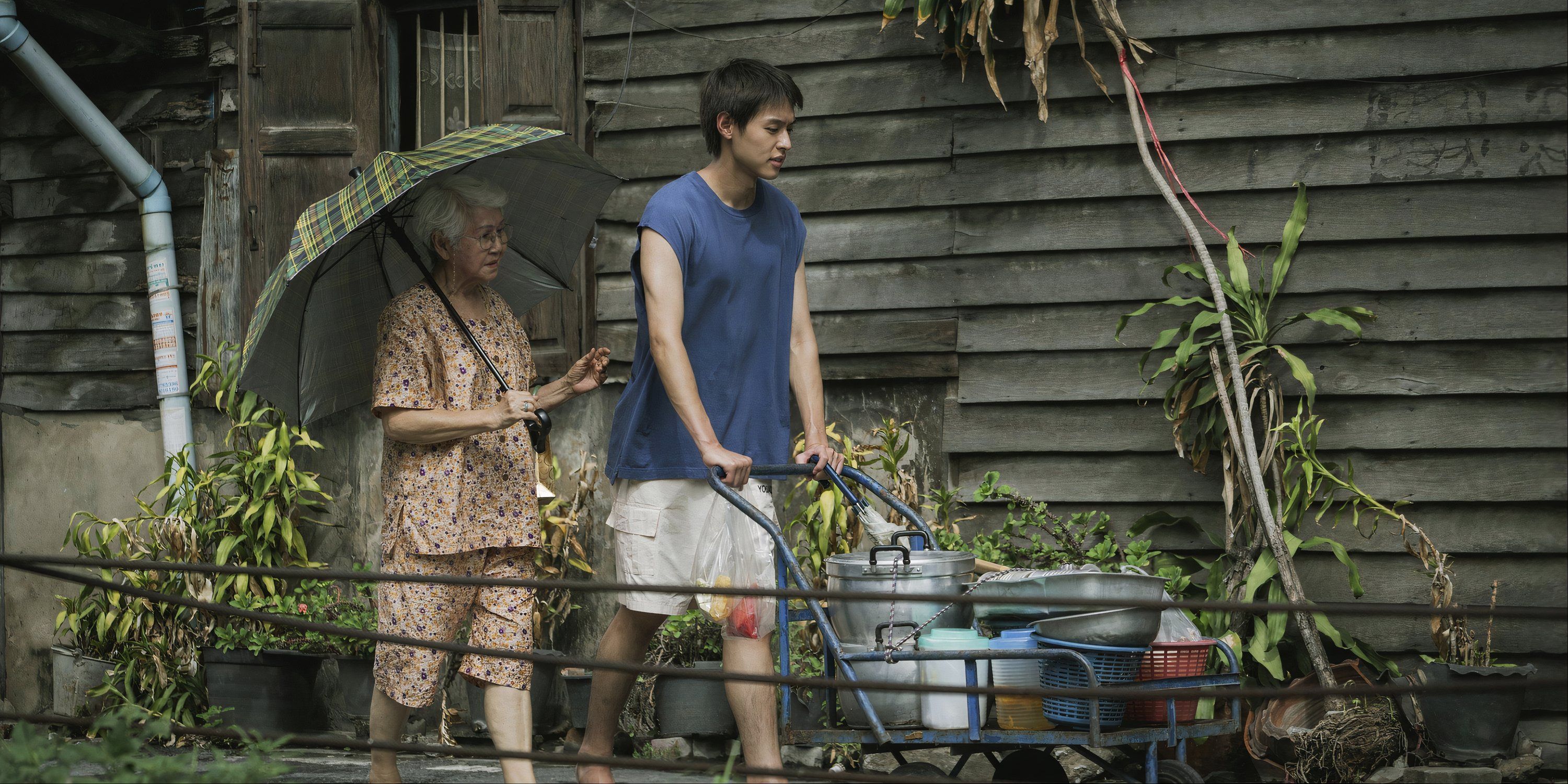2025 Cannes Film Festival's Sentimental Values
by Helen Barlow
As with the 2024 Venice Festival, when the jury headed by Isabelle Huppert delivered Pedro Almodovar his first top European festival award, the Golden Lion, to The Room Next Door, Hollywood was again shut out in Cannes this year, with the jury headed by Juliette Binoche announcing Jafar Panahi’s A Simple Accident (aka It Was Just an Accident) as the Palme d’Or winner.
Given Binoche’s support of the Iranian dissident filmmaker — when receiving her Cannes best actress award for Abbas Kiarostami’s Certified Copy in 2010, she held up a Jafar Panahi placard as he was under house arrest — his win was to be expected, even if critics deemed Norwegian director Joachim Trier’s family drama Sentimental Value or Brazilian Kleber Mendonca Filho’s The Secret Agent as stronger contenders.
Certainly, the Brazilian looked relieved when he won for best director after his star Wagner Moura [below] took out the best actor prize. Sentimental Value, where Trier reunites with Renate Reinsve from his Oscar-nominated The Worst Person in the World, was awarded the Grand Prix.

It was a strange year for the competition, as there were no outstanding films that are likely to go on to receive major Oscar glory as happened in past years with Parasite, Anora, Emilia Perez and Anatomy of a Fall. Though, the three films mentioned should be strong contenders for best international film and perhaps Moura for best actor.
Much had been expected of Alpha, French director Julia Ducournau’s pandemic body horror and follow-up to her Palme d’Or winner Titane. Yet, the incoherent, indulgent film was largely derided by critics, and it probably achieved the most walkouts.
There was certainly a large contingent of American competition contenders. Ari Aster’s Eddington was particularly unpopular, marking Joaquin Phoenix’s second bomb in a row, after Joker 2. How major stars like Pedro Pascal (arguably more famous now than Phoenix) Emma Stone, Austin Butler and Luke Grimes (from Yellowstone) were lured for unimpressive supporting roles is a mystery.

Lynne Ramsay’s Die, My Love, likewise, had star power with Jennifer Lawrence [above] and Robert Pattinson as the leads. But the story of a bipolar woman who is alone all day with a new baby and is neglected by her philandering husband, didn’t gain traction with critics; though Lawrence’s performance is exceptional and her comments about her own motherhood at the press conference were widely reported.

The Phoenician Scheme marks another fine chapter in Wes Anderson’s artful universe and is really one for the fans, while Josh O’Connor continues his penchant for working with understated auteurs – as a hapless art thief whose heist goes amusingly awry in Kelly Reichardt’s The Mastermind [above], and alongside Paul Mescal in The History of Sound directed by Oliver Hermanus. Mescal has been outspoken in saying the latter gay romance is not another Brokeback Mountain as some critics proclaimed, and while the film certainly isn’t as good, it has its moments. O’Connor is set to star in Steven Spielberg’s upcoming original event film alongside Emily Blunt, Colin Firth, Colman Domingo and Bono’s daughter Eve Hewson, so he is on a roll.
Bono: Stories of Surrender, directed by Andrew Dominik, screened away from the competition and provides a surprisingly candid look at the U2 frontman’s life and career. It’s worth watching when it streams on Apple TV+ from Friday.

One of the best films at the festival was Eugene Jarecki’s thrilling documentary The Six Billion Dollar Man, focusing on Julian Assange and his battle in fighting extradition to the US. Assange, of course, won the battle and now lives in Australia. How he achieved that with the help of an army of supporters, most prominently his unflappable lawyer, Jennifer Robinson and his determined wife Stella, is astounding and the film reveals a surprising amount of new evidence. Prime Minister Anthony Albanese, Pamela Anderson and Edward Snowden also appear in the film. The film, which won a Special Jury Prize in the festival’s l’Oeil d’Or documentary awards, is yet to be sold to Australia, but one distributor believes it will end up on a streaming platform. Assange arrived in Cannes wearing a T-shirt listing the names of Palestinian children killed in Gaza. He is not ready to speak to the press, his wife says, though he attended the premiere and gave a short speech at the l’Oeil d’Or awards. “Europe should be a haven for human rights, freedom of speech, freedom of the press—not a place where people can be subject to transnational oppression,” he said.

The Dangerous Animals premiere proved to be the festival’s most fun screening in the Directors’ Fortnight sidebar with ushers even wearing shark heads as they greeted audience members on their arrival. One critic deemed Jai Courtney’s portrayal as a serial killer who feeds his victims to sharks as his best performance ever. Shot on the Gold Coast, Sean Byrne’s Dangerous Animals was the only fully Australian feature at the festival.

Australian cinematographer Dion Beebe received the Pierre Angenieux homage this year with Micheal Mann, Ang Lee, Jane Campion, Gillian Armstrong, Niki Caro, Rob Marshall and Tom Cruise singing his praises via video link. Of Cruise, Beebe later told us, “It was very generous of him and mostly it was to do with the fact that the two movies I did with him are such different types of movies, Collateral and Edge of Tomorrow. It was quite emotional, and of course, I had to say something, which I did.” Was he nervous? “Of course, cinematographers are supposed to not be in the spotlight or on the stage. We, by design, stay in the shadow, but every now and then, we have to step into the light.”

Also on the Australian front, Joel Edgerton was in town to promote The Plague [above], his first film as producer under his Five Henrys production company banner. Edgerton plays the well-meaning, if ineffective, water polo coach of a group of boys at an American summer camp. The feature debut of American director Charlie Polinger, the Australia-United Arab Emirates-US production is about bullying and male dynamics as the boys ostracize Eli (Kenny Rasmussen) because he has a case of eczema aka the plague. Variety notes “The idea of adolescence as a horror story is not new, but it’s given a splashy workout in Charlie Polinger’s queasily stylish debut feature.”
Earl Cave, Nick Cave’s son, proves that he can act in the first half of Kristen Stewart’s addiction drama The Chronology of Water, though the 24-year-old wasn’t in Cannes. Maybe he’d seen the disappointing, pretentious film, one of three directing debuts by famous actors.
Harris Dickenson’s Urchin again focused on addiction, though was far better. It won the FIPRESCI award in Un Certain Regard, the section where its star Frank Dillane won for best actor. “Frank Dillane is brilliant as a homeless London drug addict who struggles to escape the cycle of his own behaviour,” notes IndieWire.

Scarlett Johansson’s dramedy Eleanor the Great was the pick of the bunch and was one of the few truly commercial films at the festival. June Squibb can do no wrong and the 95-year-old excels as a woman gaining celebrity by pretending to be a Holocaust survivor.
Richard Linklater’s black and white competition film, Nouvelle Vague, failed to win any prizes. But the director’s dramatised homage to Jean-Luc Godard’s Breathless, has been picked up by Netflix, which is a reward in itself.
The best actress prize went to Nadia Melliti, who makes her acting debut in Hafsia Herzi’s French film, The Little Sister [below], a queer Muslim coming-of-age drama, which also won the Queer Palm. Luc & Jean-Pierre Dardenne were awarded the screenplay prize for the French-Belgian co-production The Young Mother’s Home, which represents a return to fine form.

The Marseilles-based, Gaza-born brothers, Tarzan and Arab Nasser, won the best director prize in Un Certain Regard for Once Upon a Time in Gaza [below], their follow-up to Gaza Mon Amour which was Palestine’s submission to the 2021 Oscars. While the current situation in Gaza hovers over the film, its story of a young student, who in 2007 forges a friendship with a charismatic restaurant owner and drug dealer, is decidedly human in its depiction of a life under siege, and is farcical at times. The action skips forward to 2009 when Hamas is fully in power and part of the regime’s new program is to produce The Rebel, a TV series highlighting the acts of a militant who died a martyr. The student resembles him and is cast as the lead.

Fearless Paris-based Israeli filmmaker Nadav Lapid, the winner of Berlin’s Golden Bear in 2019 for Synonyms, made his new film, Yes [below], guerilla-style in Israel to avoid the authorities. He says the film, which follows a struggling jazz musician, Y, tasked after October 7 with changing Israel’s national anthem from Jewish hope to Palestinian eradication, is his response to his country’s “blindness” to the suffering in Gaza. The Wrap calls the film “ferocious” and “confrontational”, noting how it was a late addition premiering at the end of the festival away from the official selection in the Directors’ Fortnight sidebar, “if only because a film this incendiary might have burned up the whole Palais.” Referring to Y and his sexy dancer wife Jasmine, Variety calls it a “delirious absurdist tale of a couple tested by political principles–or lack thereof–in the wake of October 7.” The film has garnered some of the festival’s strongest reviews and hopefully will make it to Australian cinemas.

Main Image: Winners and Jury of the 78th Festival de Cannes © Jean_Louis_Hupe/FDC









